Inside the shelled Ukrainian city where soldiers and civilians are primed for a Russian onslaught
Russian shelling has decimated a school, hospital and homes in Zhytomyr, where military preparations are ramping up amid fears the city could be Putin’s next target if Kyiv were to fall, Bel Trew reports
Your support helps us to tell the story
From reproductive rights to climate change to Big Tech, The Independent is on the ground when the story is developing. Whether it's investigating the financials of Elon Musk's pro-Trump PAC or producing our latest documentary, 'The A Word', which shines a light on the American women fighting for reproductive rights, we know how important it is to parse out the facts from the messaging.
At such a critical moment in US history, we need reporters on the ground. Your donation allows us to keep sending journalists to speak to both sides of the story.
The Independent is trusted by Americans across the entire political spectrum. And unlike many other quality news outlets, we choose not to lock Americans out of our reporting and analysis with paywalls. We believe quality journalism should be available to everyone, paid for by those who can afford it.
Your support makes all the difference.All that stood between the school caretaker and a Russian rocket which landed like a javelin from the sky was a pillar that somehow saved him from being “chopped into bloody pieces”.
The missile destroyed half the complex, which houses preschool, primary and secondary school facilities in Zhytomyr, Ukraine’s last western city before the capital Kyiv and a key gateway for people fleeing Russia’s war to the comparative safety of the west and beyond.
As Russian shelling intensifies and the front lines of the conflict – now in its twelfth day – draw ever closer, this is a city on edge.
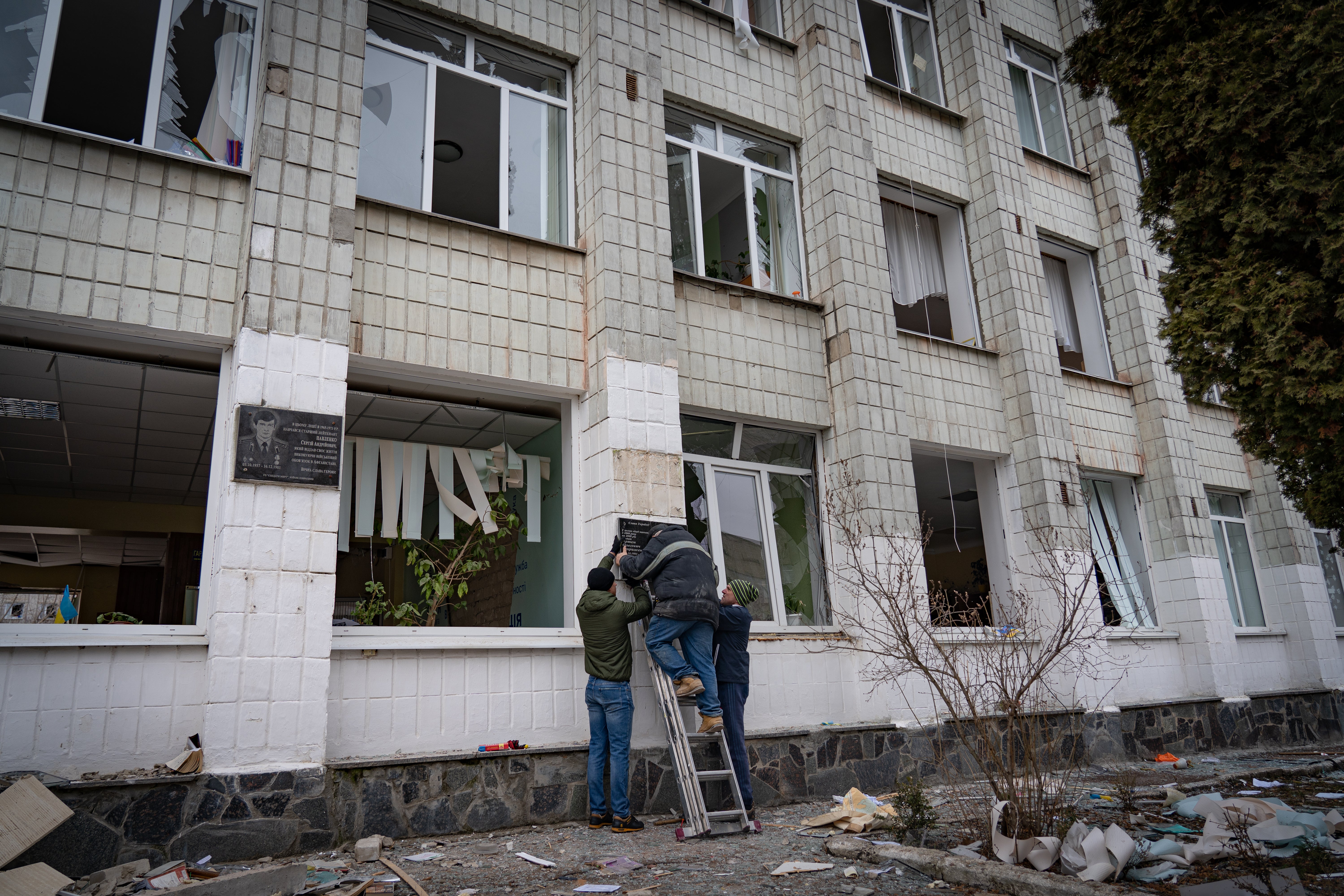
Every hour on the hour, the air raid sirens wail, signalling fresh incoming fire. In recent days, missiles have decimated homes, a school and a hospital – killing at least four civilians and injuring a dozen more.
Standing in the ruins of the school complex, 61-year-old caretaker Oleh described how a pillar shielded him from the hurricane of rubble and shrapnel that eviscerated the building around him.
“If this was not here, I would have been chopped to bloody pieces,” he tells The Independent amid the rubble, still dazed a day after the attack.
“It was so fast we didn’t even understand what had happened. One second I was watching a teacher pour herself a coffee. The next… bang.”
Across town, another missile strike two days earlier had wiped out the maternity unit and the emergency department of the city’s main hospital complex.
The attack forced staff to evacuate the complex and construct smaller, makeshift emergency wards underground. Nearby, in a residential neighbourhood, several homes had been swallowed by huge craters from another barrage of strikes that killed women and children.
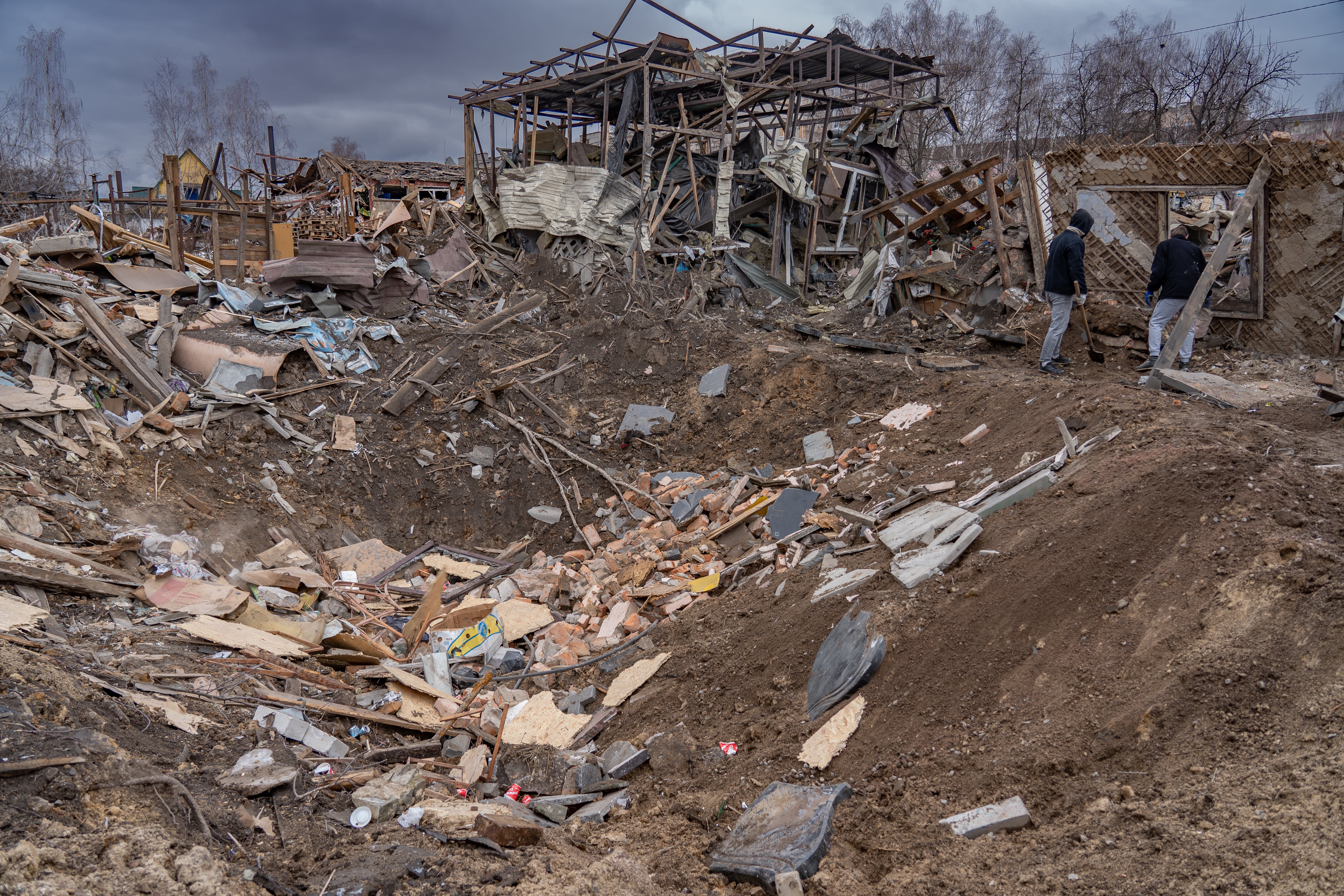
“Ten houses were wiped out by this nightmare,” says 50-year-old Pavel, whose own home was destroyed, standing next to a snow-filled crater by the shell of a house, as diggers tried to move the rubble.
His friend, Alexander, is in tears as he helps with the effort to clear the debris.
“Why the kids? Why the schools? What is the point of this?” he shouts before walking away, saying he was too overwhelmed to continue.
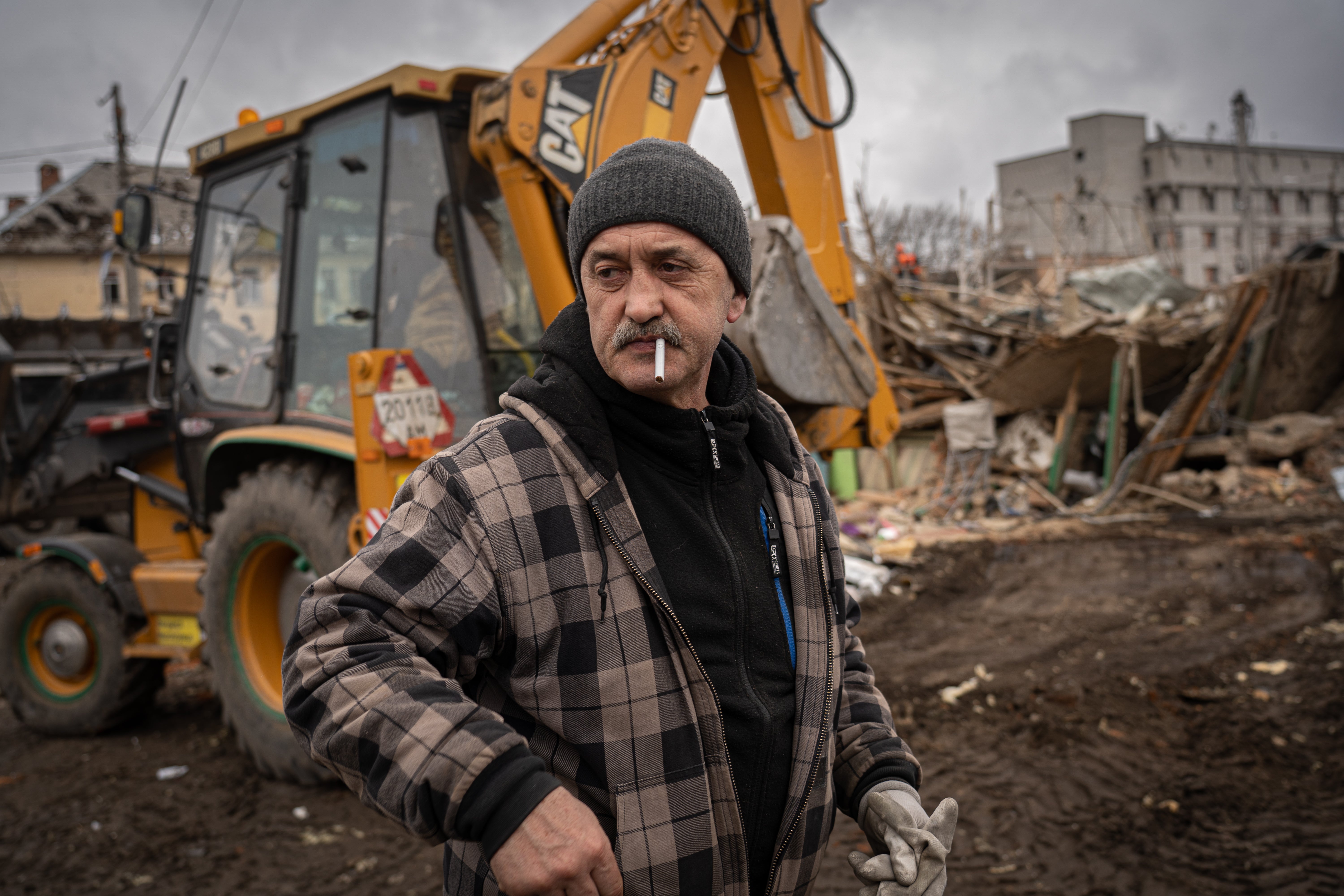
At the start of Russia’s invasion 12 days ago, Zhytomyr, located at the end of the main road out of Kyiv, was considered mainly as a vital transit point for those desperately trying to escape the conflict. More than 1.7 million people have fled the country so far in what the UN refugee agency is calling Europe’s biggest refugee crisis since the Second World War.
But the city has since become a kind of cliff edge of the frontline.
That road from Zhytomyr to the capital – the E40 – is among the most dangerous in the country, as it has come under attack from Russian troops approaching from near the Belarus border.
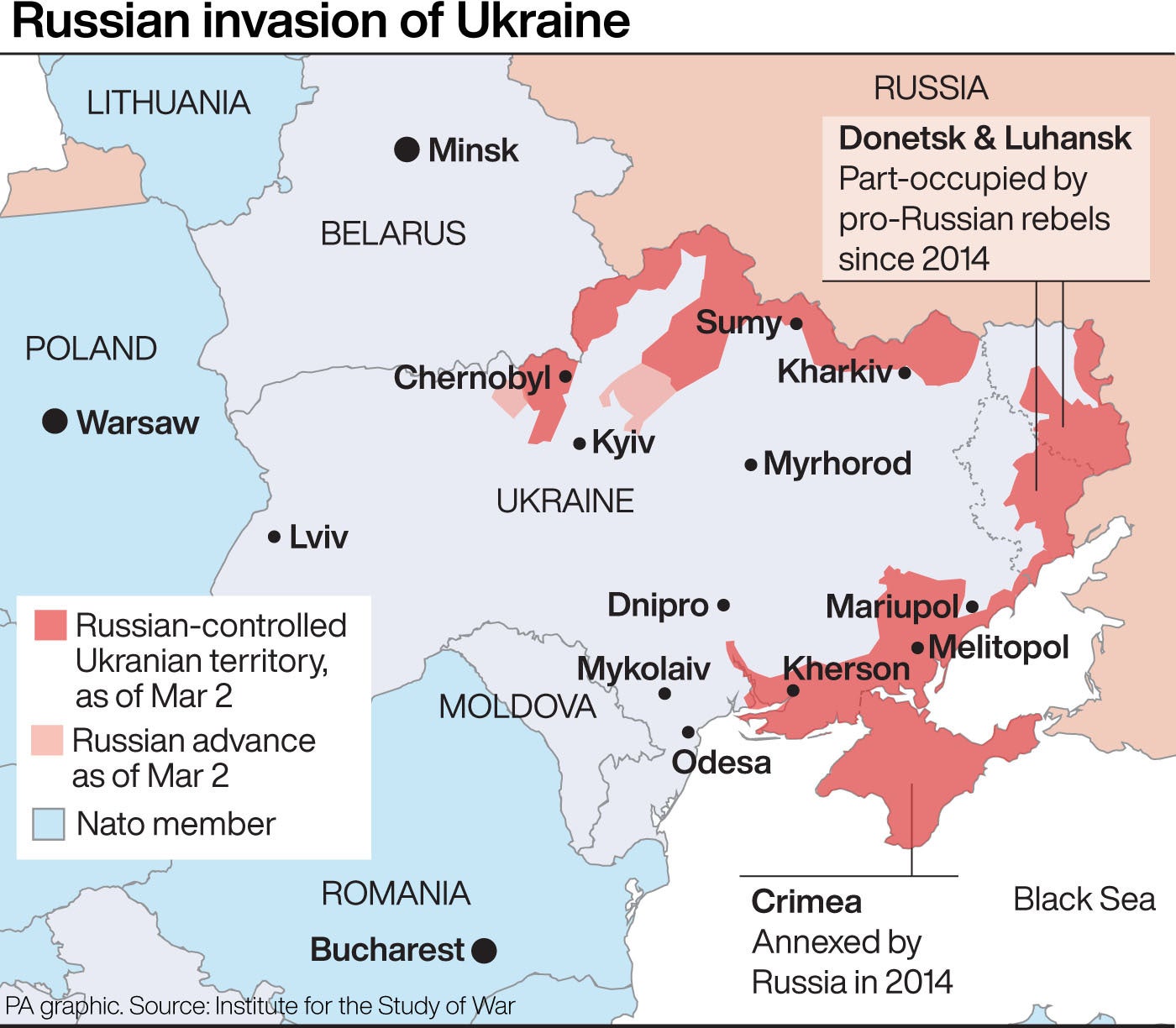
On Sunday, at least eight civilians including two children were killed in Irpin, a town that lies at the end of the E40 on the outskirts of Kyiv, as Russian forces fired shells at people fleeing.
The Independent has set up a petition calling on the UK government to be at the forefront of the international community offering aid and support to those in Ukraine. To sign the petition click here.
The Independent is also raising money for the people of Ukraine – if you would like to donate then please click here for our GoFundMe page.
Zhytomyr is also a target as the home of the main base of the 95th Air Assault Brigade – considered one of the most prestigious units in Ukraine’s military. It has legendary status among civilians due to its record during the war in eastern Donbas which erupted in 2014.
And so the entire city is now under intense bombardment – from army facilities to civilian neighbourhoods – says Yuriy Melnyk, who is part of Zhytomyr’s military administration.
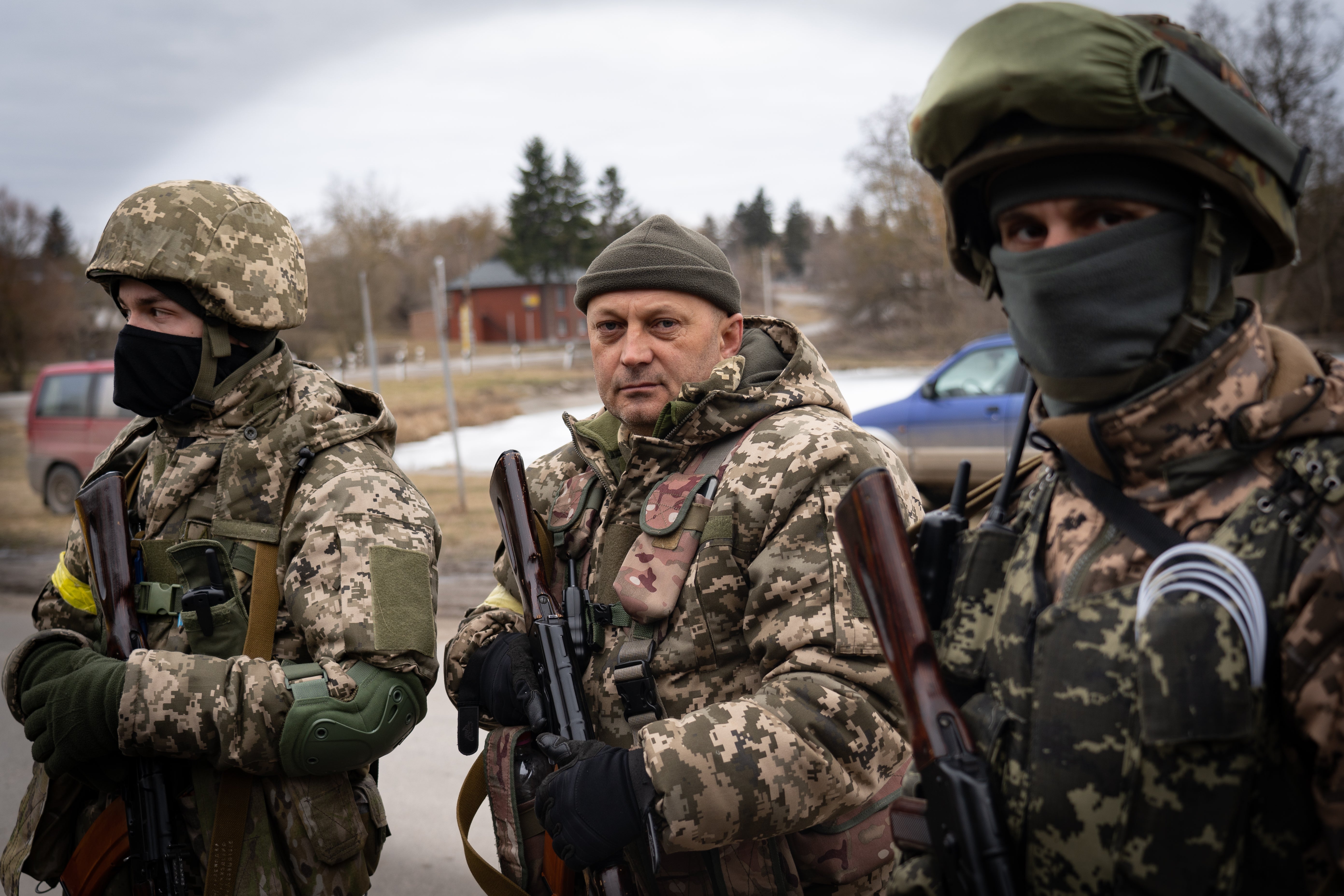
“Zhytomyr is the frontline of the defence for the west of Ukraine and the refugee trail. After Kyiv, if they take the capital, they will come here first,” he says.
“To put it another way, Zhytomyr is a central line of defence for Kyiv as Dnipro used to be for Donbas,” Mr Melnyk adds, referencing the ongoing eight-year war in the east of the country.
Mr Melnyk says the city’s growing strategic significance is the reason behind an exponential rise in the number of civilians joining the territorial defence in the last week.
The official number of those who have signed up to defend Zhytomyr is 3,000, but with the auxiliary battalions, helpers and other teams of volunteers there is now an army of 15,000 civilians mobilised to help, he adds. This is no mean feat for a city of 280,000 people.
“There are Ukrainians who live abroad who have come back to the country to help fight here.”
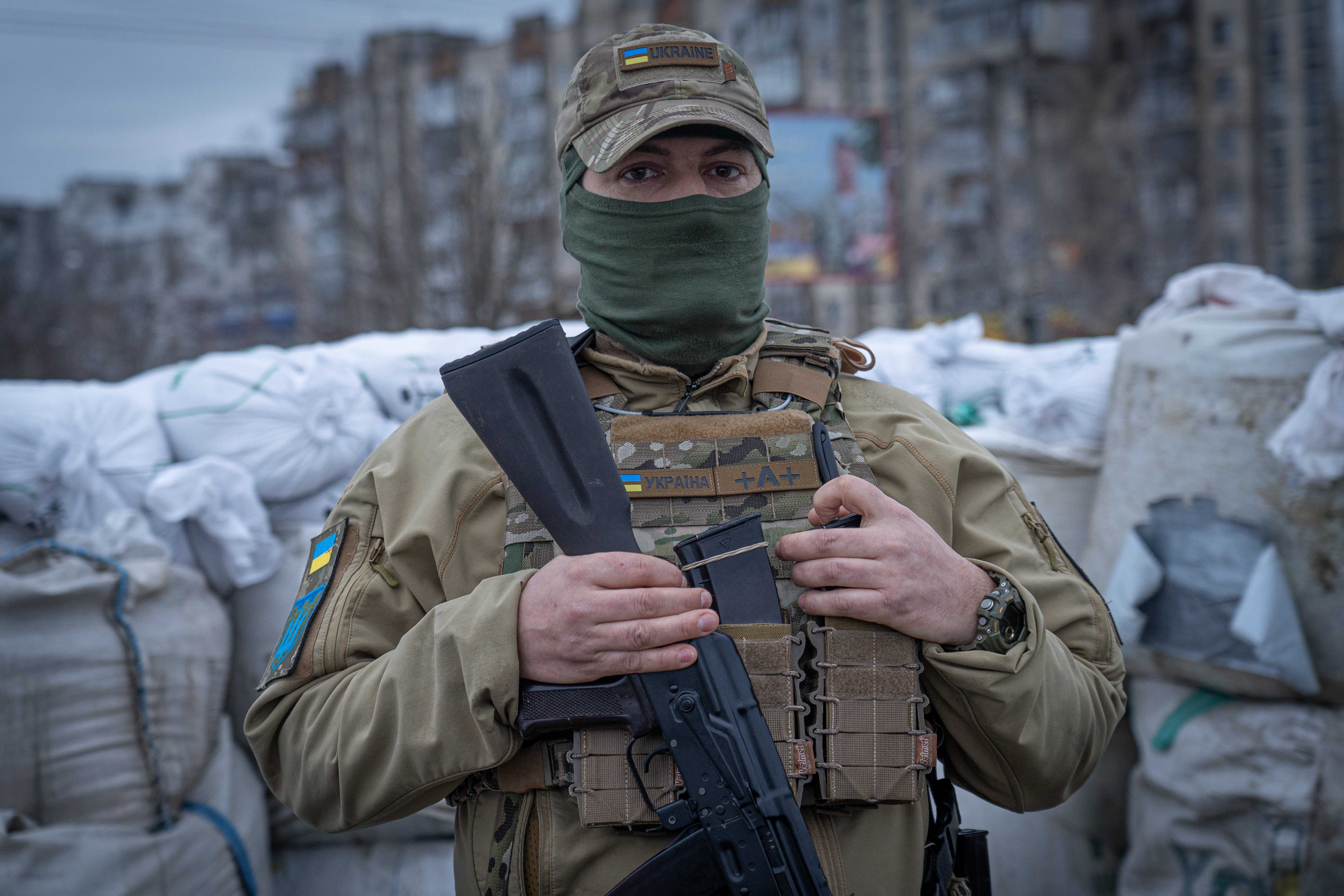
While the military ramps up its preparations, people who keep the city running – from teachers to doctors – must do so amid shelling that has turned their lives upside down.
The World Health Organization (WHO) said on Sunday that their teams had verified at least eight attacks on healthcare facilities across Ukraine which have killed six people. Dr Tedros Adhanom Ghebreyesus said the WHO would investigate further attacks amid reports of possible war crimes.
Among these assaults is the one that damaged Zhytomyr’s Pavlusenko hospital, which locals say was hit by a long-range missile strike.
On Tuesday, the maternity unit’s staff scrambled to evacuate 45 women and 15 newborn babies to the shelter below, with one pregnant woman going into labour due to the shock of the explosion.
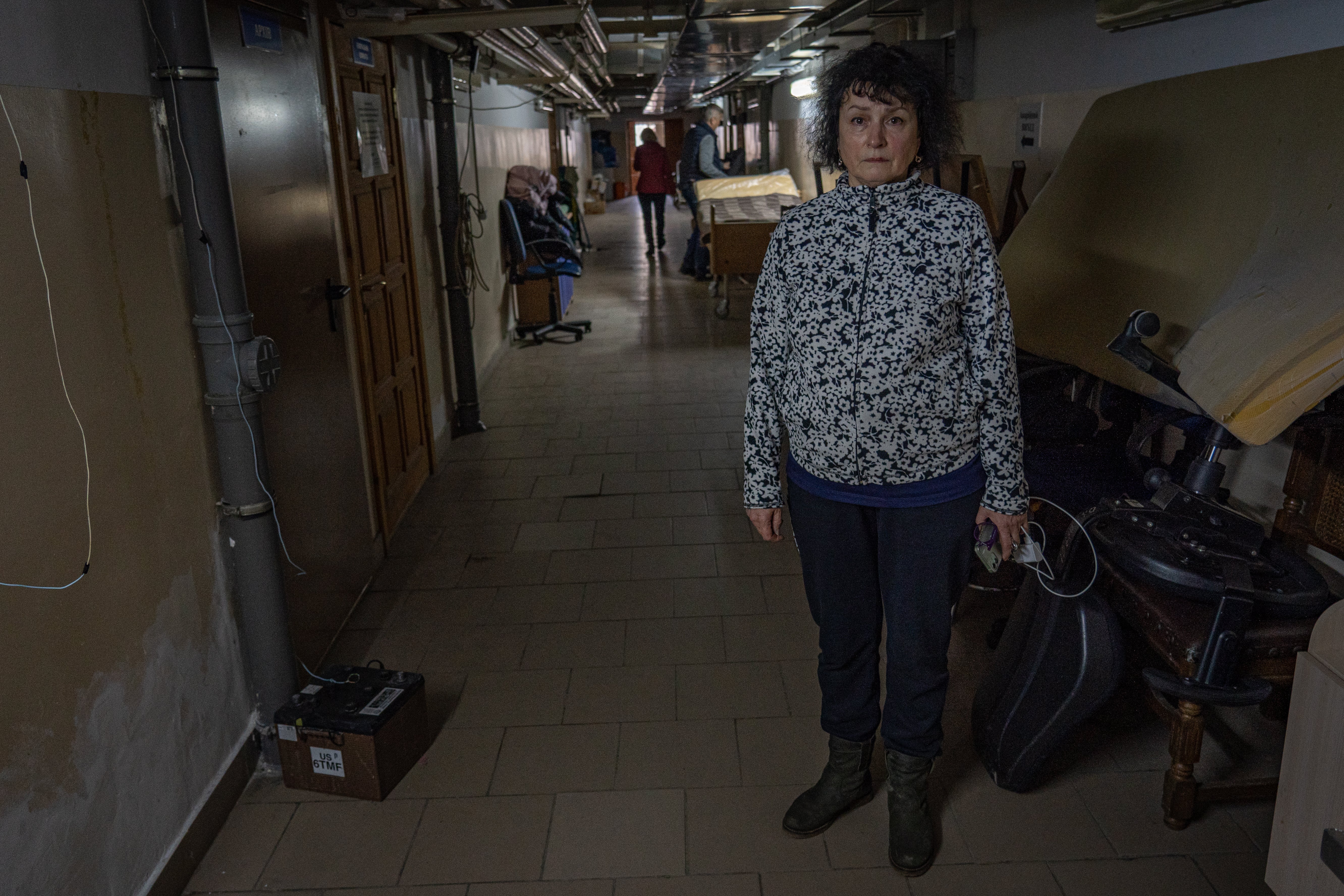
Doctors and nurses there have spent the last few days boarding up the broken windows in the freezing cold. Shattered glass, splinters from doors and ruined equipment litter the floors.
The head of the maternity unit, Dr Olena Volodymyrivna, says they have been preparing a special bunker hospital for pregnant women in the basement as the onslaught continues.
They hope to be able to care for at least 20 mothers and their babies.
“Right now we are trying to the impossible, to save the lives of the pregnant women in the city. We set up a hospital here underground but we cannot perform our duty to the fullest,” Dr Volodymyrivna says, as she points out the damage to the neonatal clinic and wards.
“Now, Ukrainian children are born in basements under the full fire of Russia. It’s impossible,” she adds, breaking down into tears.
Everyone The Independent spoke to in Zhytomyr had one message for Europe and the west – which was to impose a no-fly zone, saying their biggest threats are from the skies.
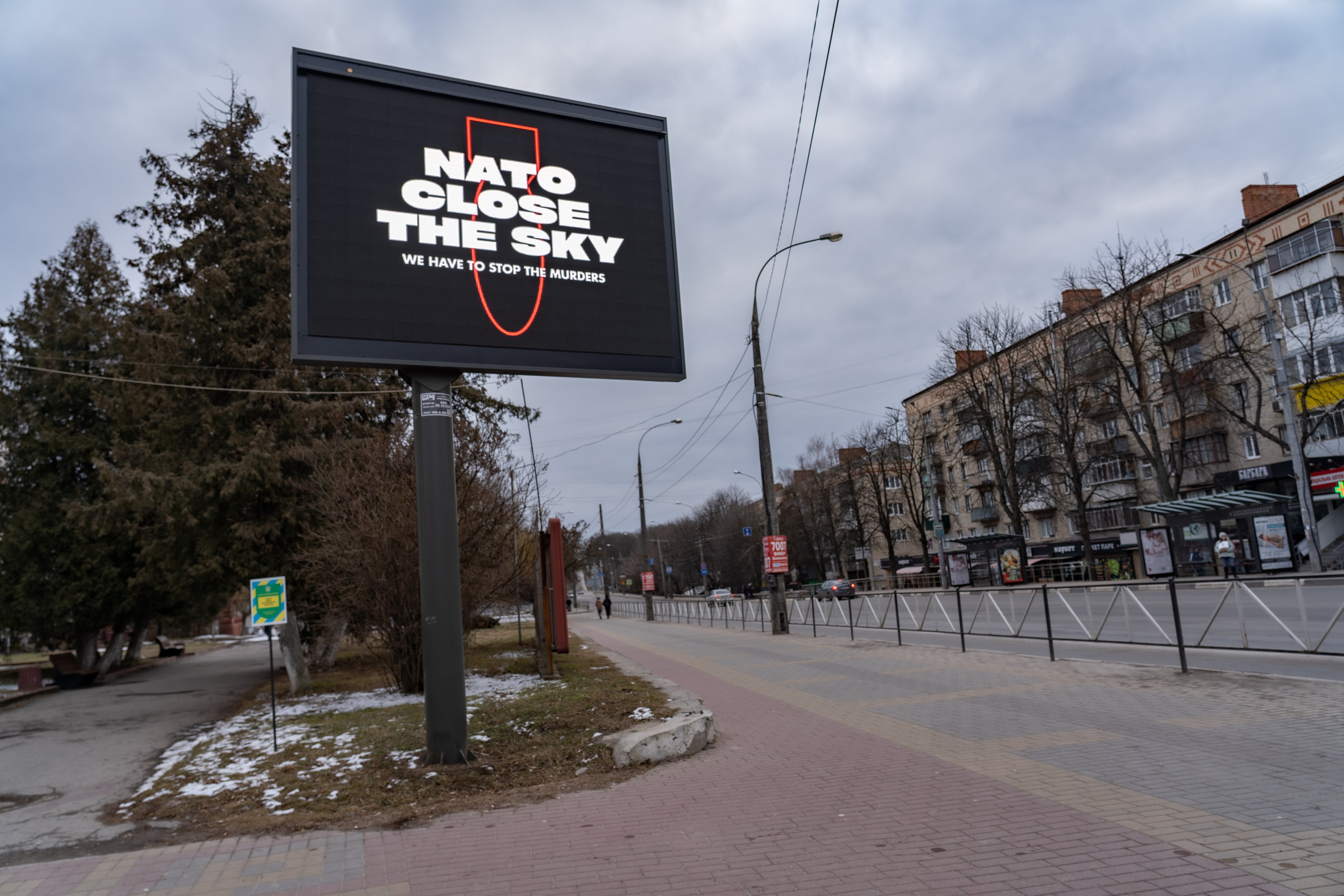
Ukraine’s president Volodymyr Zelensky has repeatedly made the same demand to Nato, a request that the military alliance will not entertain on the grounds it could spur a wider war in Europe.
“On behalf of all mothers of Ukraine, and all the community of doctors, we ask the world to help close the sky,” says Dr Volodymyrivna flanked by her medical staff in the bunker.
“Do this so that no mother or child or elderly person perishes, so that Ukraine is not destroyed.”
The Independent has a proud history of campaigning for the rights of the most vulnerable, and we first ran our Refugees Welcome campaign during the war in Syria in 2015. Now, as we renew our campaign and launch this petition in the wake of the unfolding Ukrainian crisis, we are calling on the government to go further and faster to ensure help is delivered. To find out more about our Refugees Welcome campaign, click here. To sign the petition click here. If you would like to donate then please click here for our GoFundMe page.




Join our commenting forum
Join thought-provoking conversations, follow other Independent readers and see their replies
Comments